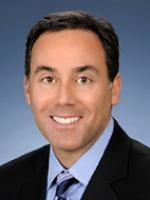On November 17, 2016, the US Court of Appeals for the Third Circuit in Delaware Trust Co. v. Energy Future Intermediate Holding Co. LLC, No. 16-1351 (3d Cir. Nov. 17, 2016) clarified the often-muddy interplay between indenture acceleration provisions and "make-whole" redemption provisions, holding that Energy Future Intermediate Holding Co. LLC and EFIH Finance Inc. (collectively, "EFIH") were unable to avoid paying lenders approximately $800 million in expected interest by voluntarily filing for bankruptcy. More specifically, the Court held that the indentures' acceleration provision, which provided that the notes matured upon bankruptcy, did not extinguish EFIH's obligation to pay noteholders the applicable premium (i.e., interest lost on notes redeemed before their expected maturity) as provided under the "make-whole" provision.
Background
In 2013, as interest rates declined, EFIH set a path to refinance approximately $4 billion in first-priority lien notes with a 10 percent interest rate that were due in 2020 (the "first lien notes"), and two sets of notes secured by a second-priority lien on its assets that were due in 2021 and 2022 (the "second lien notes," and collectively, the "notes"). New York law controls the indentures governing the Notes, which contain two provisions at the heart of the dispute: (1) a "make-whole" provision, entitled "Optional Redemption," which provided "[a]t any time prior to December 1, 2015, [EFIH] may redeem all or a part of the Notes at a redemption price equal to 100% of the principal amount of the Notes redeemed plus the Applicable Premium . . . and accrued and unpaid interest;" and (2) an acceleration provision, which made outstanding notes due and payable immediately if EFIH filed for bankruptcy, and also gave noteholders the right to rescind acceleration.[1]
EFIH knew that if it chose to redeem the notes prior to December 1, 2015, the "make-whole" provision would require it to pay noteholders the principal "plus the applicable premium . . . and accrued and unpaid interest." It assumed, however, that it could avoid the "make-whole" obligation by filing for bankruptcy, which would render the notes immediately due and payable under the acceleration provision and, theoretically, release EFIH from the obligation to pay noteholders the interest lost by redeeming before December 1, 2015. Toward that end, EFIH filed an 8-K form disclosing its plan, and subsequently filed Chapter 11 bankruptcy petitions in the US Bankruptcy Court for the District of Delaware.
EFIH then sought leave from the court to refinance the first lien notes. The trustee filed an adversary proceeding seeking declarations (1) that refinancing the notes would trigger the make-whole premium; and (2) that it could rescind the automatic acceleration without violating the automatic stay (but, should the stay apply, the trustee asked the Court to lift it). With the court's blessing, EFIH refinanced the notes, but without paying the noteholders the 10 percent income stream provided by the make-whole provision.
As for the second lien notes, EFIH filed an 8-K with the SEC reserving its right to redeem them, and sparking a similar adversary proceeding by the trustees for the second lien noteholders. EFIH subsequently refinanced the second lien notes, again, without paying the make-whole premium.
Several months after the bankruptcy court approved EFIH's refinancing of the first lien notes, it ruled that EFIH did not have to pay the make-whole premiums—and it also declined to lift the stay, which put the noteholders in a difficult situation: on one hand, the court held that the bankruptcy accelerated maturity of the first lien debt and severed the noteholders' right to yield-protection; on the other hand, the court blocked rescission of the acceleration provision, which would have restored the noteholders' right to the make-whole. The court reached similar conclusions in the second lien litigation, and both holdings were affirmed by the district court on appeal.
The Third Circuit reversed the bankruptcy and district court holdings, finding, as a threshold matter, that EFIH's actions constituted an "optional redemption" based on the language of the "make-whole" provision. Based on the provision's language, the Court evaluated whether (1) there was a redemption; (2) the redemption was optional; and (3) it occurred before December 1, 2015. See id. at 14.
First, even though the term "redemption" was undefined in the indentures, the Court concluded that the term encompassed payment of accelerated debt based on New York and federal case law finding "redemptions" to include both pre- and post-maturity repayments of debt. Id. at 14.
Second, the Court rejected EFIH's argument that the redemptions were mandatory because the bankruptcy filing automatically triggered maturity under the acceleration provision. The Court stressed that it was a voluntary bankruptcy filing, and EFIH chose not to reinstate the original maturity dates despite having the option to do so. The Court also examined EFIH's behavior before and after the refinancing—namely, that EFIH had announced in SEC filings that it planned to refinance the first lien notes in bankruptcy and reserved the right to right to redeem the second lien notes. Critically, the noteholders did not want to be repaid, leaving "no doubt [that] the redemption of the Notes was optional." Id. at 16.
Lastly, the redemption occurred prior to December 1, 2015 (as discussed below, it was important that redemption was tied to a specific date rather than a "date when due").
EFIH relied on (mostly) favorable case law in arguing that the acceleration provision severed its make-whole obligations. The Court sorted through the slew of recent litigation on this topic, and several important practical guidelines can be deduced from the Court's reasoning. Namely:
1) An acceleration provision that is silent as to "make-whole" does not annul the make-whole provision.
The Court addressed whether the acceleration provisions' failure to reference the "make-whole" premiums implied that the "make-whole" obligations would cease by virtue of acceleration.
Citing NML Capital v. Republic of Argentina, 952 N.E.2d 482, 489-90 (N.Y. 2011), the Court held that "make-whole" provision are "unswayed [by the] other provisions" and, by default, stand alone. Id. at 18. In NML, the New York Court of Appeals evaluated whether Argentina remained obligated to pay biannual interest to bondholders after maturation or acceleration of the debt, where the bond language was silent on the topic. The NML court found that Argentina remained on the hook for the interest payments because New York law contains no rule "declaring that other terms of the contract not necessarily impacted by acceleration . . . automatically cease to be enforceable after acceleration."
On the same reasoning, the Third Circuit stated, "it surpasses strange to hold that silence in [the acceleration provision] supersedes [the "make-whole provision's] simple script." Id. at 19.
2) In order to sever "make-whole" obligations, acceleration provisions must specifically reference "make-whole" obligations.
In arguing that the acceleration provision severed the make-whole obligation, EFIH relied on In re AMR Corp., 730 F.3d 88 (2d Cir. 2013), which found that the AMR's "make-whole" obligations were cut off via acceleration of the debt maturity. While the Third Circuit embraced the AMR court's "just follow the text" approach, it pointed out a crucial factual distinction: the acceleration provision in AMR expressly excluded make-whole premiums from the surviving obligations by including the language "but for the avoidance of doubt, without Make-Whole Amount." EFIH at 17-18.
Along the same lines, the Third Circuit cited the NML court's examples of bond language that might have clarified that acceleration severed the issuer's interest payments. Namely, the NML surmised that the bond documents could have stated that the "obligation continued until the maturity date" or that "interest payments were to be made until the principal was due" (referring back to the loan maturity date). Id. at 22.
EFIH also asserted that the acceleration provision in the second lien indentures—which contained narrower language than the first lien indentures in that it caused principal "and premium, if any. . . " to become due—was insufficiently specific in light of In re MPM Silicones, LLC, No. 14-22503-RDD, 2014 WL 4436335, at *13 (Bankr. S.D.N.Y. Sept. 9, 2014), aff'd, 531 B.R. 321 (S.D.N.Y. 2015) ("Momentive"), where the bankruptcy court found the words "premium, if any" insufficient to require payment of a make-whole premium. EFIH at 20. The Third Circuit sharply disagreed with the Momentive result, finding that it "conflicts with the indenture's text and fails to honor the parties' bargain." Id. The Court wondered what other "premium" the EFIH indenture drafters could have in mind. Id.
3) "Redemption" does not equal "prepayment."
EFIH cited Nw. Mut. Life Ins. Co. v. Uniondale Realty Assocs., 816 N.Y.S.2d 831, 836 (N.Y. Sup. Ct. 2006) ("Northwestern") in its arguments that make-whole premiums are unavailable after acceleration unless specifically reserved in the governing agreement. In Northwestern, the court deemed that a mortgage lender who chose to foreclose following default was not entitled to a "prepayment premium" because the debt's maturity was accelerated via foreclosure. Id. at 23. The Third Circuit pointed out that, unlike prepayment, redemption can occur at or after maturity, and is thus inherently unaffected by acceleration of a debt's maturity. Id. at 24.
While EFIH contended that the "make-whole" provision was, in substance, a prepayment provision, the Third Circuit insisted that "by avoiding the word ‘prepayment' and using the term ‘redemption,' [the parties] decided that the ‘make-whole' would apply without regard to the Notes' maturity." Id. at 25. Further, from a policy standpoint, the Northwestern court was concerned that lenders would seek immediate repayment plus a premium. In contrast, the EFIH noteholders did not seek immediate payment—indeed, EFIH redeemed the notes over their objections.
4) Issuers have the burden to insist on clear indenture language if they intend to sever make-whole obligations through acceleration.
EFIH asserted that, in light of Northwestern, the noteholders should have insisted on clearer indenture language. The Third Circuit disagreed, finding, "this puts the burden backward; if EFIH wanted its duty to pay the make-whole on optional redemption to terminate on acceleration of its debt, it needed to make clear that [the acceleration provision] trumps [the make-whole provision]." Id. at 27.
Throughout its opinion, the Third Circuit stressed that it was giving effect to the parties' intent as expressed by their language. See e.g., id. at 13, 27. The Court's opinion should give comfort to noteholders that bankruptcy cases in Delaware, and particularly the many holders whose relevant indentures are governed by New York law, will not result in the automatic stripping of make-whole premium rights, but in cases where the language provides for those rights, they will be enforced. More broadly, litigants have additional support for the long-standing proposition that parties' intent is best determined by the language they choose when drafting their agreement.
[1] While not significant to the result of the appeal, the second-lien indentures' acceleration provision differed from that of the first lien indentures' in that it provided for payment of "all principal of and premium, if any, interest . . .[,] and any other monetary obligations on the outstanding Notes . . . ." (emphasis added.) The acceleration provision in the first lien indenture did not expressly reference payment of a premium.






 />i
/>i
